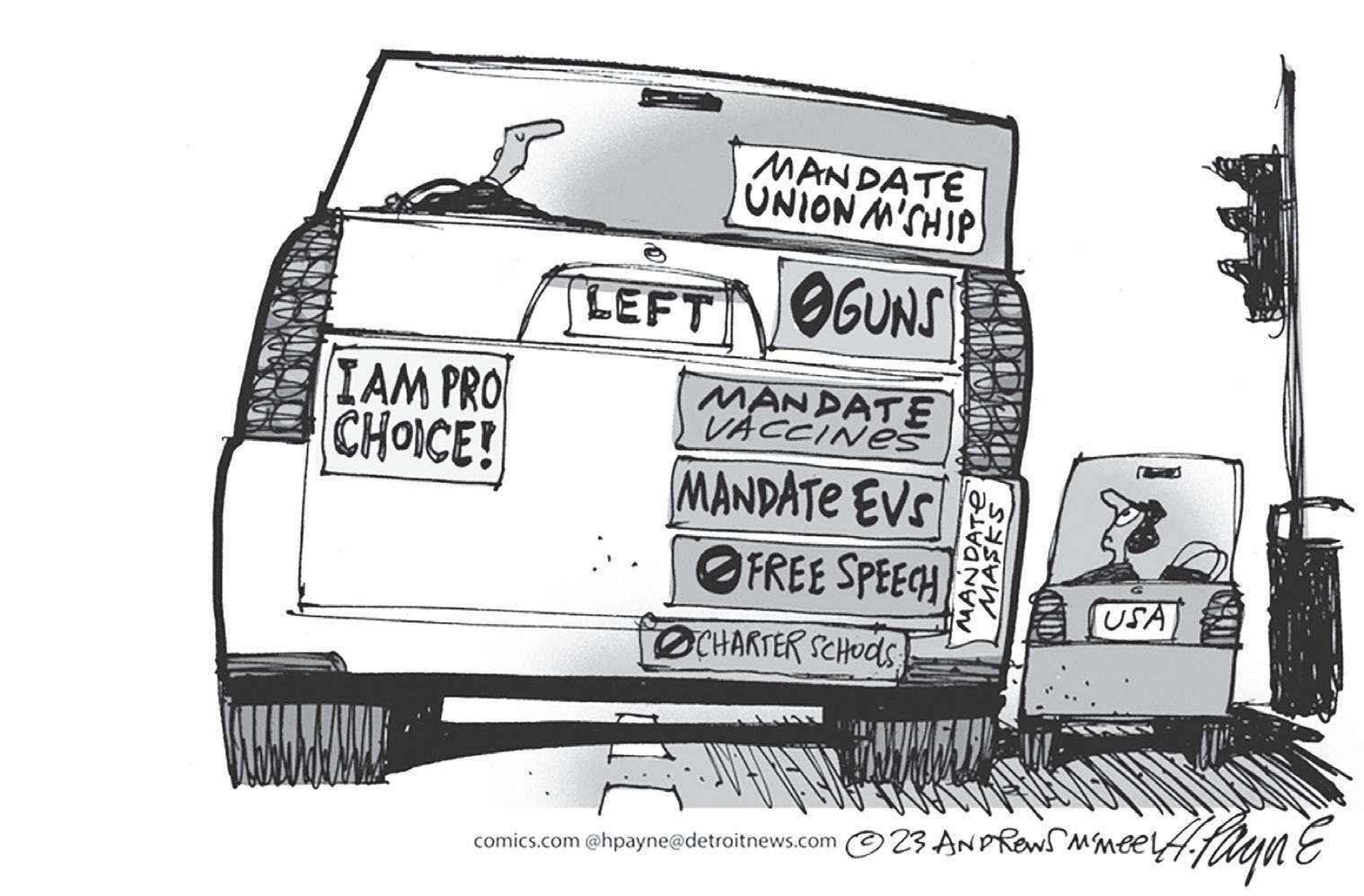
1 minute read
FREEDOM in ACTION
LETTER to the EDITOR
Walll Street Journal
Advertisement
March 13, 2023
WSJ’s March 3 Weekend Interview with Phillip Howard offered a troubling glimpse into how the unions representing this country’s public employees aspire to function as a shadow government accountable only to themselves.
If anything, his message wasn’t troubling enough.
The comparison, for example, of how public-sector unions and private-sector special interests operate probably understated the critical distinction that, however many millions of dollars corporations and advocacy groups may spend to influence government policy, at least the money comes from free Americans who’ve donated it willingly.
By contrast, until the Supreme Court’s 2018 ruling in Janus v. AFSCME, unions in about half the country were able to finance their socialist political agenda using someone else’s dues and/or “agency fees.”
This put candidates and causes not aligned with the unions at a massive competitive disadvantage.
Howard is also spot on when he laments that organized labor’s grip on state, county and municipal governments throughout the country will almost certainly have to be broken judicially rather than legislatively, and there are signs the Supreme Court may have found just the case to do so.
In January, the justices indicated they might be willing to consider the case of a California benefits clerk and the Los Rios Classified Employees Association (LRCEA), which has resisted her efforts to opt out of union membership and dues since 2018.
Represented by the Freedom Foundation, Kristine Kurk argues LRCEA’s actions violate her First Amendment right to free association.
By taking the case and ruling in Kurk’s favor, SCOTUS could take that needed first step toward enforcing SCOTUS and returning control of the government to the people, not the unions.







